Based on a unique premise, Assassin’s Creed successfully combines historical fiction and action-adventure to create a series of pulpy extravaganzas. Although the franchise has had its ups and downs, it’s continued to push boundaries, taking players into increasingly enveloping and engaging scenarios.
Recent entries have taken players further into the past than ever before, and while opinions differ on its recent direction, the series has never strayed too long from providing fun and engaging titles. Assassin’s Creed has never shied away from exploring new ideas and epochs, constantly evolving along with the industry and always offering something new that keeps critics satisfied and audiences in anticipation. Although the upcoming live-service hub Assassin’s Creed Infinity presents worries for some series fans regarding the future direction of the franchise, no matter where the franchise heads in the future, it will have a strong legacy behind it.
Contents
- 1 19 Assassin’s Creed: Altaïr’s Chronicles (2008)
- 2 18 Assassin’s Creed Chronicles: Russia (2016)
- 3 17 Assassin’s Creed: Bloodlines (2009)
- 4 16 Assassin’s Creed Chronicles: India (2016)
- 5 15 Assassin’s Creed 2: Discovery (2009)
- 6 14 Assassin’s Creed Chronicles: China (2015)
- 7 13 Assassins Creed 3: Liberation (2012)
- 8 12 Assassin’s Creed: Unity (2014)
- 9 11 Assassin’s Creed: Rogue (2014)
- 10 10 Assassin’s Creed: Syndicate (2015)
- 11 9 Assassin’s Creed (2007)
- 12 8 Assassin’s Creed: Revelations (2011)
- 13 7 Assassin’s Creed: Odyssey (2018)
- 14 6 Assassin’s Creed 3 (2012)
- 15 5 Assassin’s Creed: Valhalla (2020)
- 16 4 Assassin’s Creed 4: Black Flag (2013)
- 17 3 Assassin’s Creed: Brotherhood (2010)
- 18 2 Assassin’s Creed: Origins (2017)
- 19 1 Assassin’s Creed 2 (2009)
19 Assassin’s Creed: Altaïr’s Chronicles (2008)
With awkward controls on the Nintendo DS and more emphasis on stealth that makes it feel more akin to Prince Of Persia than Assassin’s Creed, Altaïr’s Chronicles was a poor first attempt at a handheld that landed a measly 58 on Metacritic. While it is impressive that Ubisoft was able to put an open world into a DS cartridge, it is clearly a rushed product.
The biggest issue it faced with players was its length; it can be beaten completely in four to five hours. Even for an early Assassin’s Creed, that is way too short. Sadly, it also suffered from a flaw that the very first Assassin’s Creed had: the overrated protagonist Altaïr is not that interesting of a character.
18 Assassin’s Creed Chronicles: Russia (2016)

The spin-off series of Assassin’s Creed was never beloved, but Chronicles did provide a unique 2.5D side-scrolling experience. However, fans were displeased with the copy-paste style of many Assassin’s Creed subseries entries.
The highlight of Assassin’s Creed Chronicles: Russia came in the form of its 1918 Russian setting, an era more technologically advanced than the franchise has ever explored. The World War I setting was refreshing and the main character was interesting, but with a 61 on Metacritic, it still amounted to little more than an average clone of the first Chronicles game.
17 Assassin’s Creed: Bloodlines (2009)
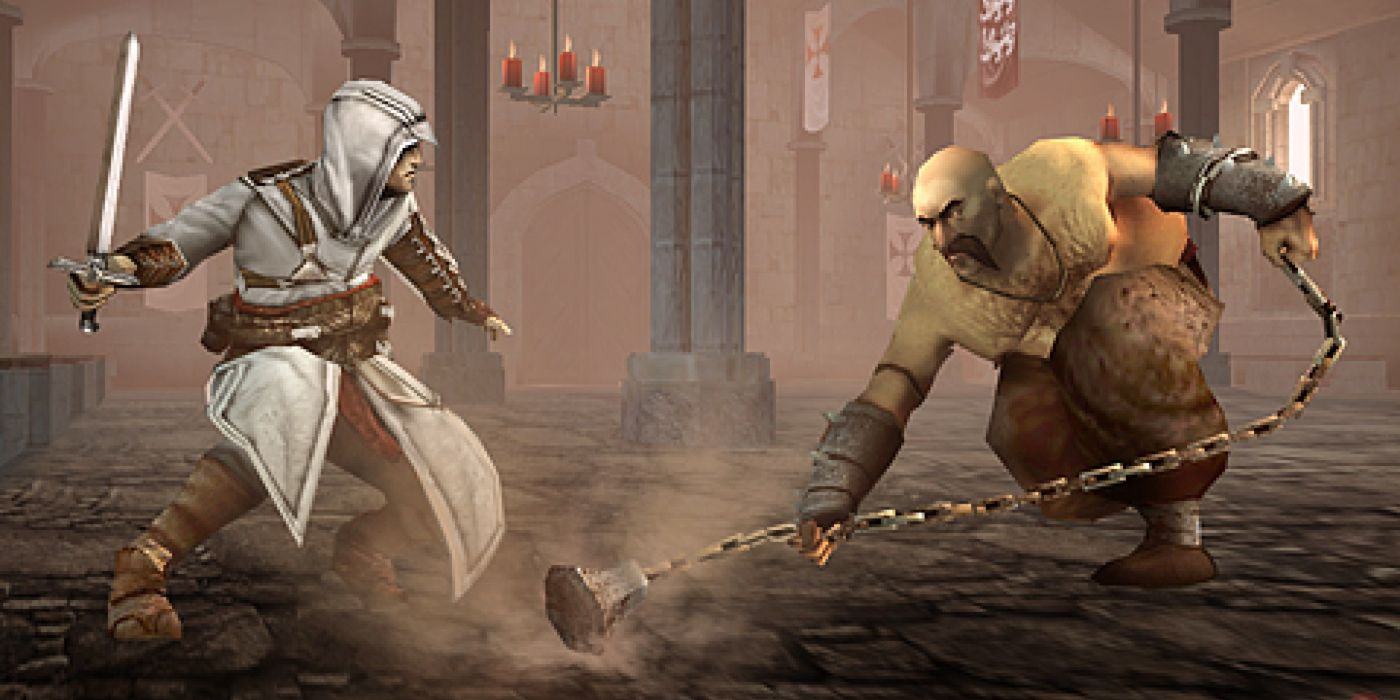
Altair made his return to the series with Assassin’s Creed: Bloodlines on the PlayStation Portable, one of only a few AC games made for handheld consoles. The gameplay was a step backward for the series – particularly since Assassin’s Creed 2 had recently released as a superior sequel to the original game and set a new standard for the franchise. While it was praised for giving Altaïr a proper return in a better story than Altaïr’s Chronicles, it only achieved a 63 on Metacritic.
Despite the impressively large map for a handheld title, the comparably unpolished and choppy gameplay made Bloodlines an unappealing alternative to the console games. A lot of this was due to the limitations of the PSP, a common problem with the system’s games.
16 Assassin’s Creed Chronicles: India (2016)
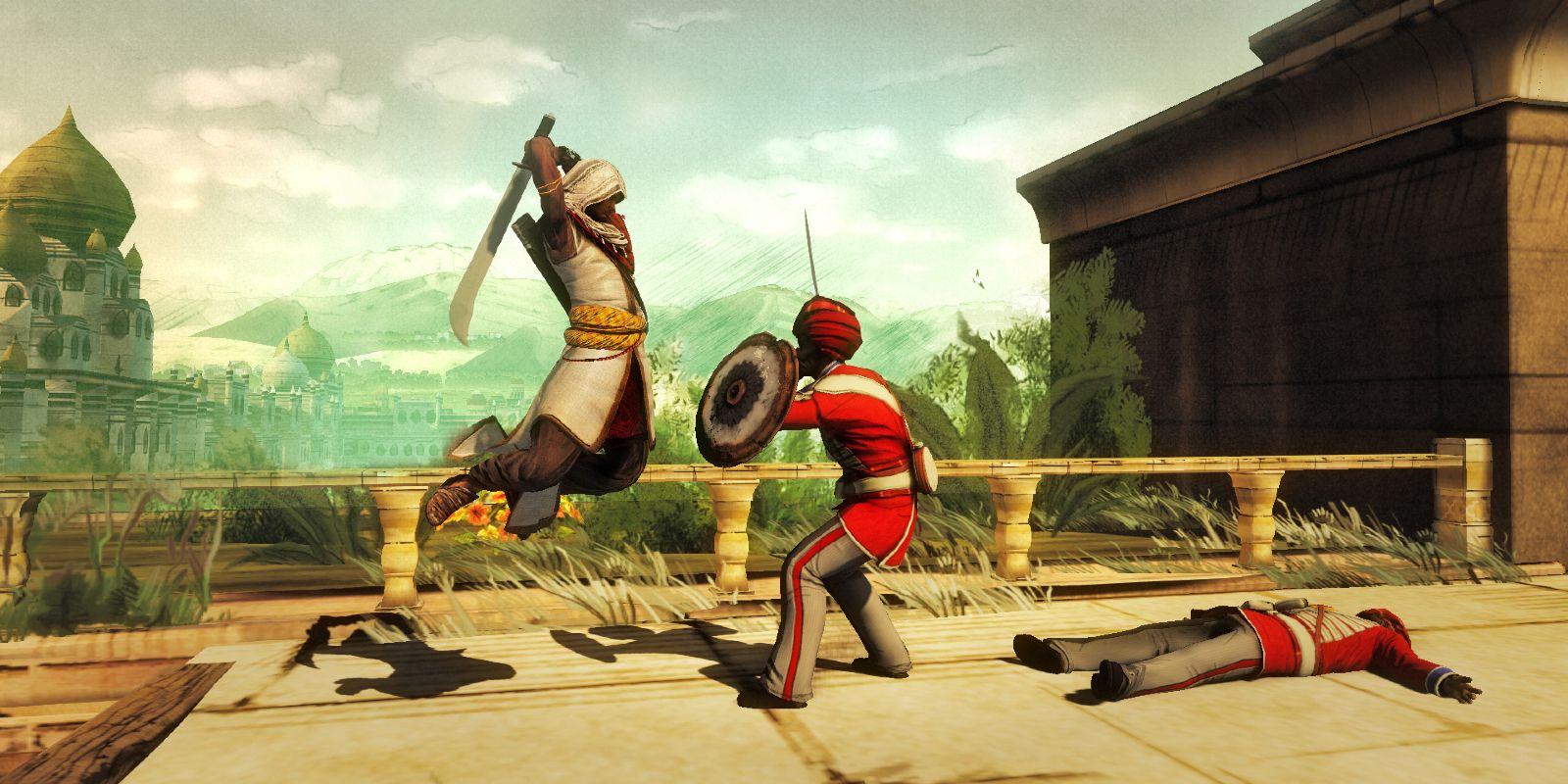
Continuing from the first Chronicles, Assassin’s Creed Chronicles: India continues to explore more exotic settings, this time showcasing the beauty of India. Many praised the visuals of India, but, like Chronicles: Russia, the sequel just does not do anything to innovate the spin-off series.
Despite its lack of innovation, those who enjoyed the inaugural Chronicles game will likely enjoy its follow-up despite its mediocre 64 on Metacritic. Although it may not be an Assassin’s Creed spinoff worth playing for everyone, fans interested in a more challenging experience can find one in Assassin’s Creed Chronicles: India.
15 Assassin’s Creed 2: Discovery (2009)
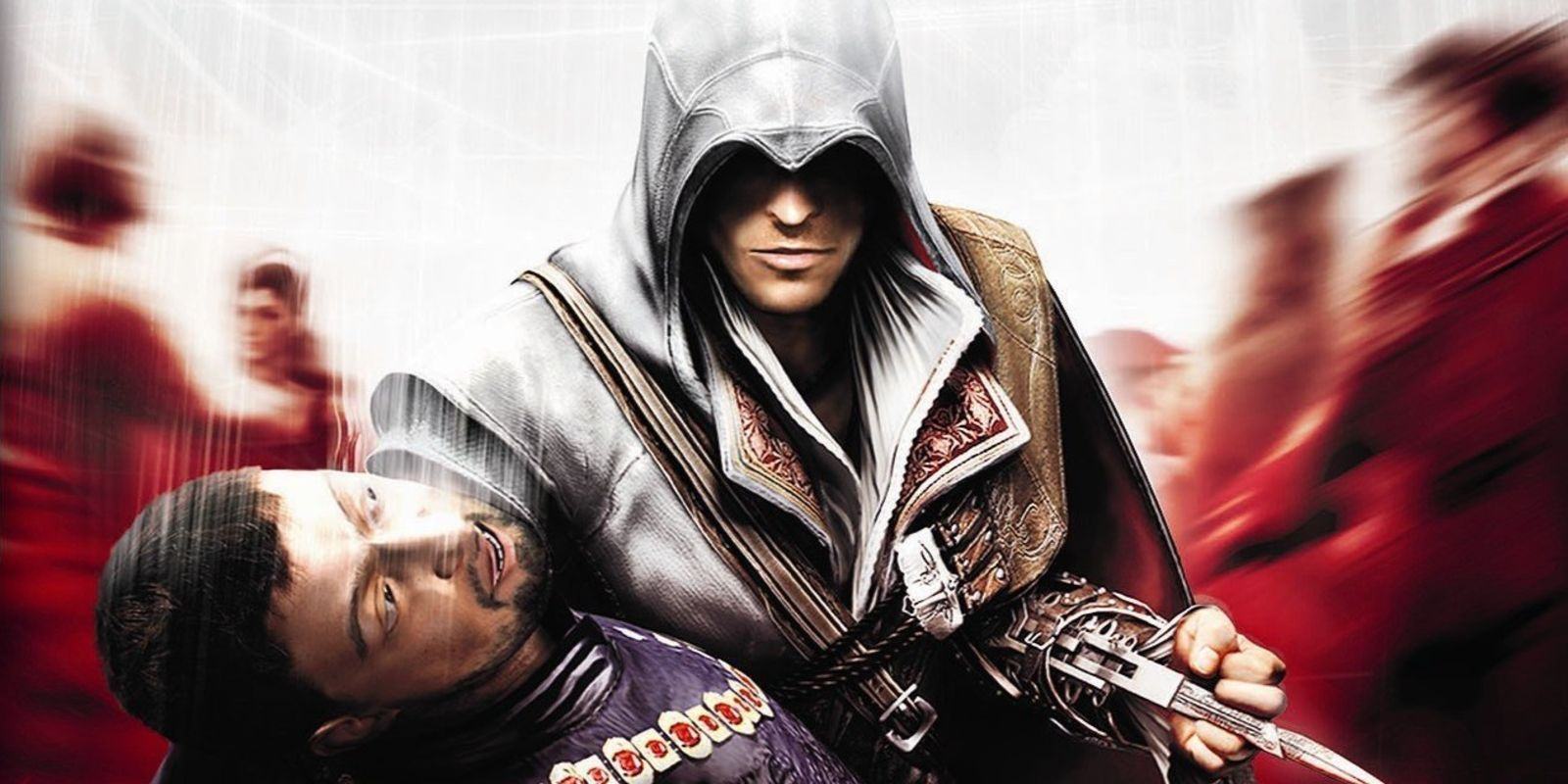
Ezio Auditore da Firenze finally got his chance to shine in a handheld title with Assassin’s Creed 2: Discovery. As such, the game received praise for continuing the legacy of one of the most beloved main characters of the whole franchise and managing to improve upon the formula.
Unfortunately, Discovery doesn’t quite manage to be anything beyond solid, showcased by the 69 it received on Metacritic. Like Altaïr’s Chronicles, the game is far too short and largely comes across as a watered-down clone of Prince Of Persia, albeit with a decent story that takes place after the events of Assassin’s Creed 2‘s DLC.
14 Assassin’s Creed Chronicles: China (2015)
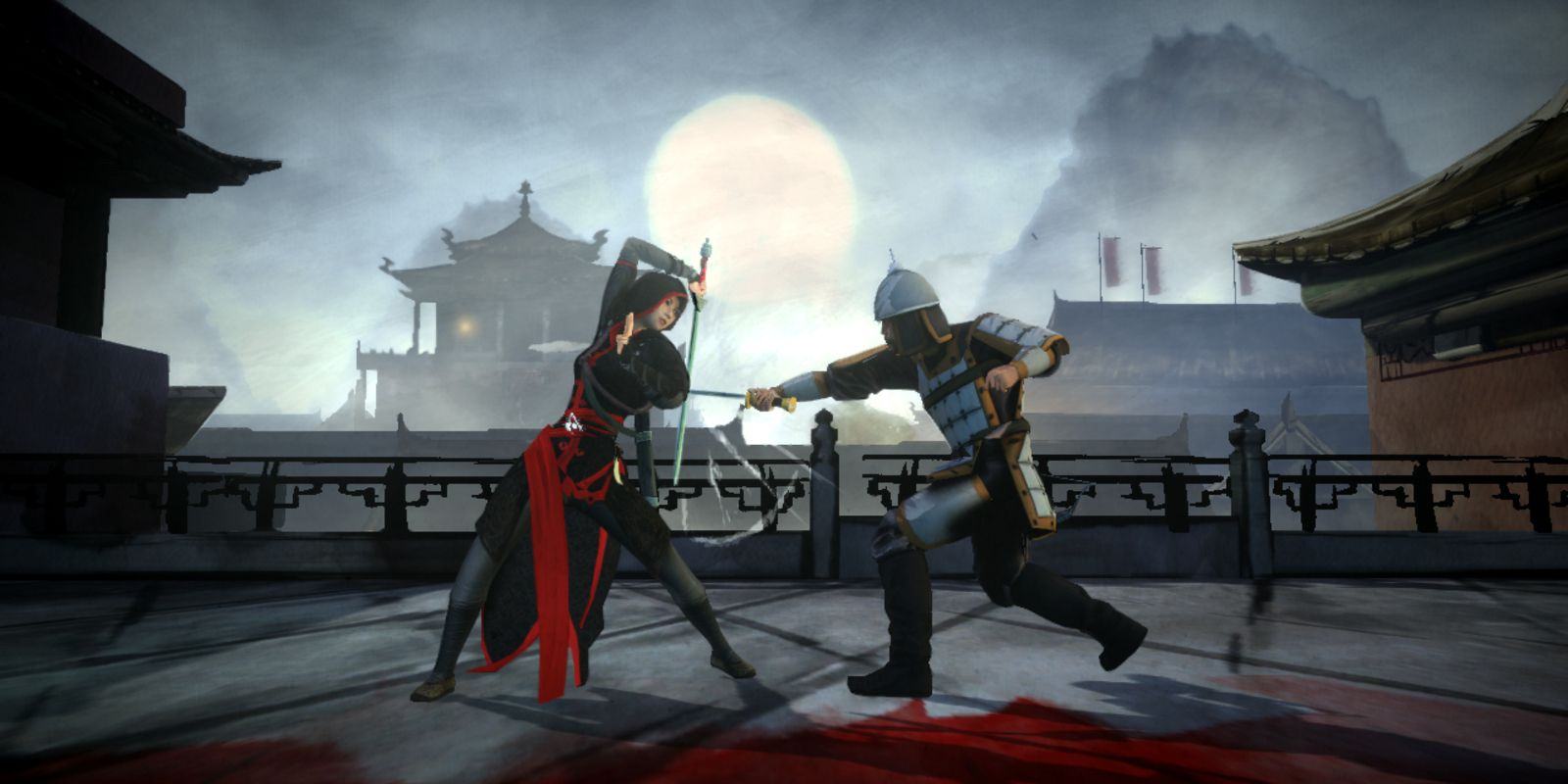
The first of the Chronicles spin-offs is definitely the best, taking players to one of the most perfect Assassin’s Creed settings for the first time. The main protagonist, Shao Jun, has the credit of being one of the franchise’s first playable female Assassins. The character was also praised due to her more grounded story and respectable portrayal of an Asian character.
A more straightforward side-scrolling action/stealth game, Chronicles: China is a refreshing break from the open-world vastness of the main titles. The game’s average score of a 69 on Metacritic showcases its limitations, but the title could have been a lot worse. There’s no reason for hardcore Assassin’s Creed fans to not give Chronicles: China a chance.
13 Assassins Creed 3: Liberation (2012)
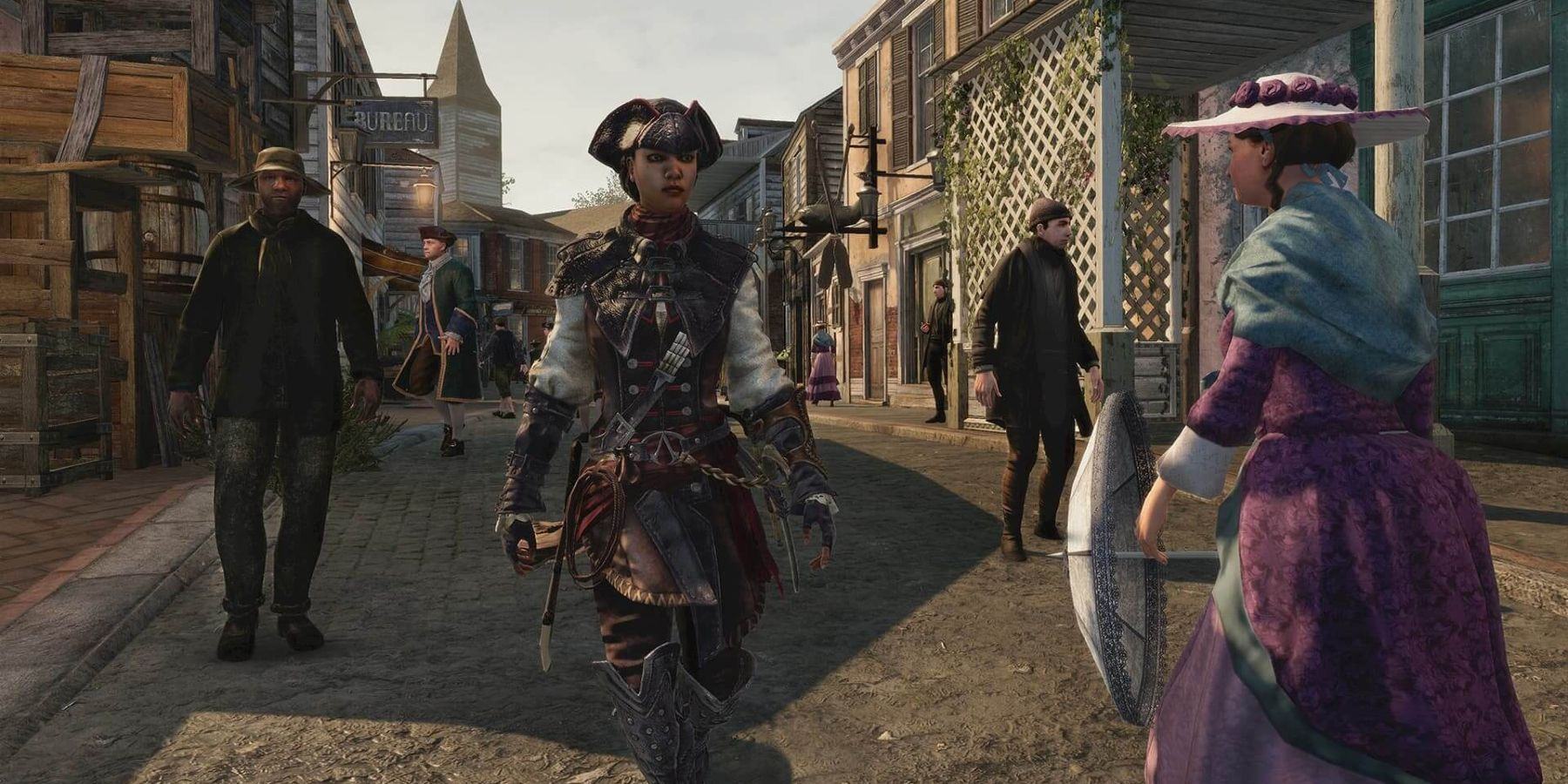
Despite its title making it sound like DLC for Assassin’s Creed 3, Liberation is actually a spin-off developed exclusively for the new – at the time – PlayStation Vita. When it comes to the Vita, Assassin’s Creed 3: Liberation is often considered a must-have game for Sony’s most recent handheld.
It keeps the typical open-world gameplay that Assassin’s Creedis known for and, despite some slowdown, manages to hold up reasonably against its console counterparts. It is praised for replicating the Assassin’s Creed 3 gameplay while introducing the first female Assassin and a unique new location. Liberation was so beloved – relative to the other side games, at least – that it even got an HD remake for two different generations of consoles.
12 Assassin’s Creed: Unity (2014)
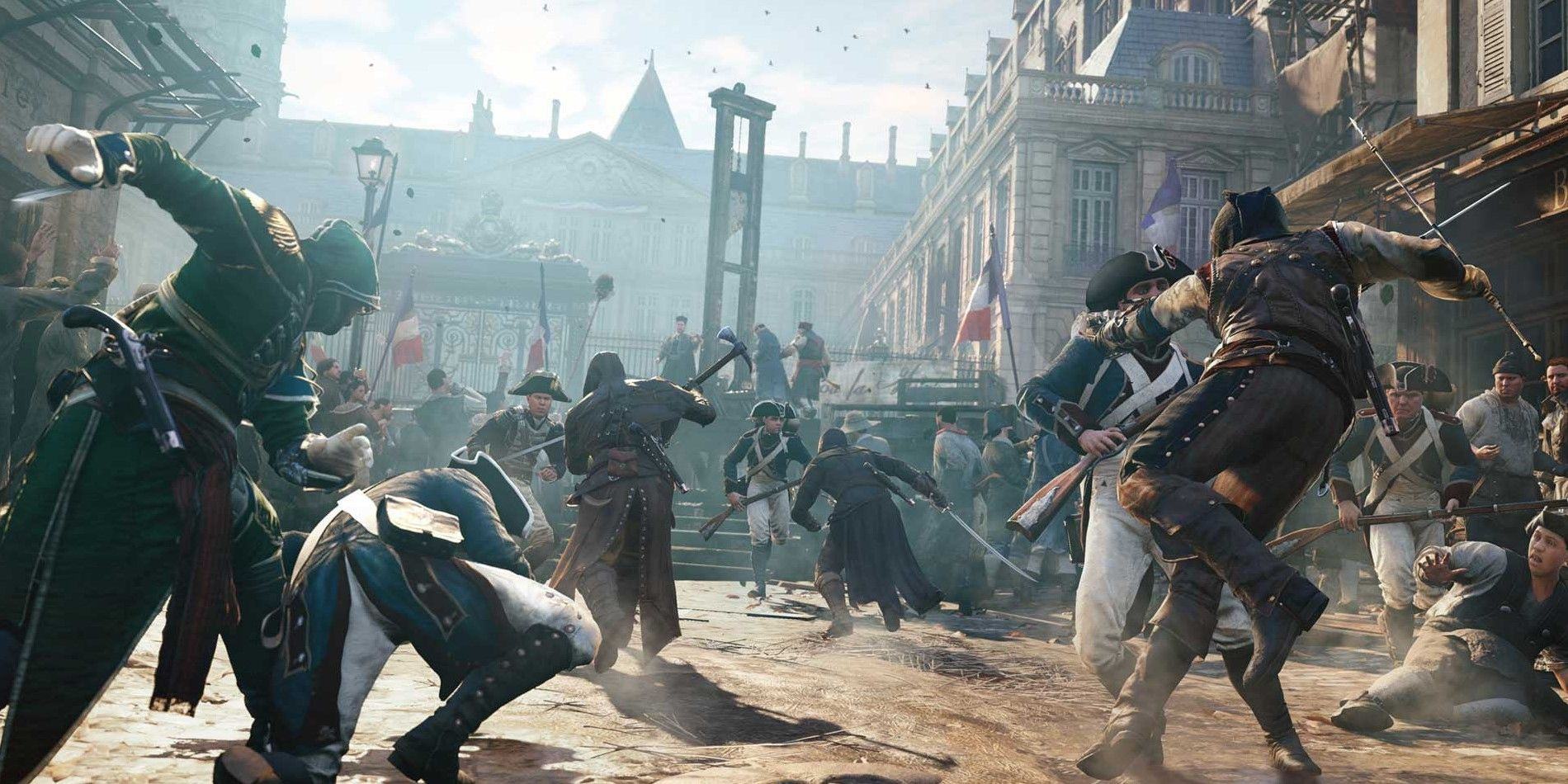
2014 was not a good year for Assassin’s Creed. Both releases received the lowest scores of any console games in the entire franchise, with Assassin’s Creed: Unity achieving a score of 71 on Metacritic. The plot is set during the French Revolution and centers on Arno Victor Dorian’s efforts to expose the true powers behind the revolution. It’s a setup AC fans had been hoping to see for some time, but it was marred with shortcomings.
Often considered the worst Assassin’s Creed, Unitydrew criticism centered on the game’s small scope and numerous technical issues which included bugs and glitches, poor graphics, and performance and connectivity issues. Although patches improved the game and its parkour system was exciting, it never reached the heights of prior titles.
11 Assassin’s Creed: Rogue (2014)
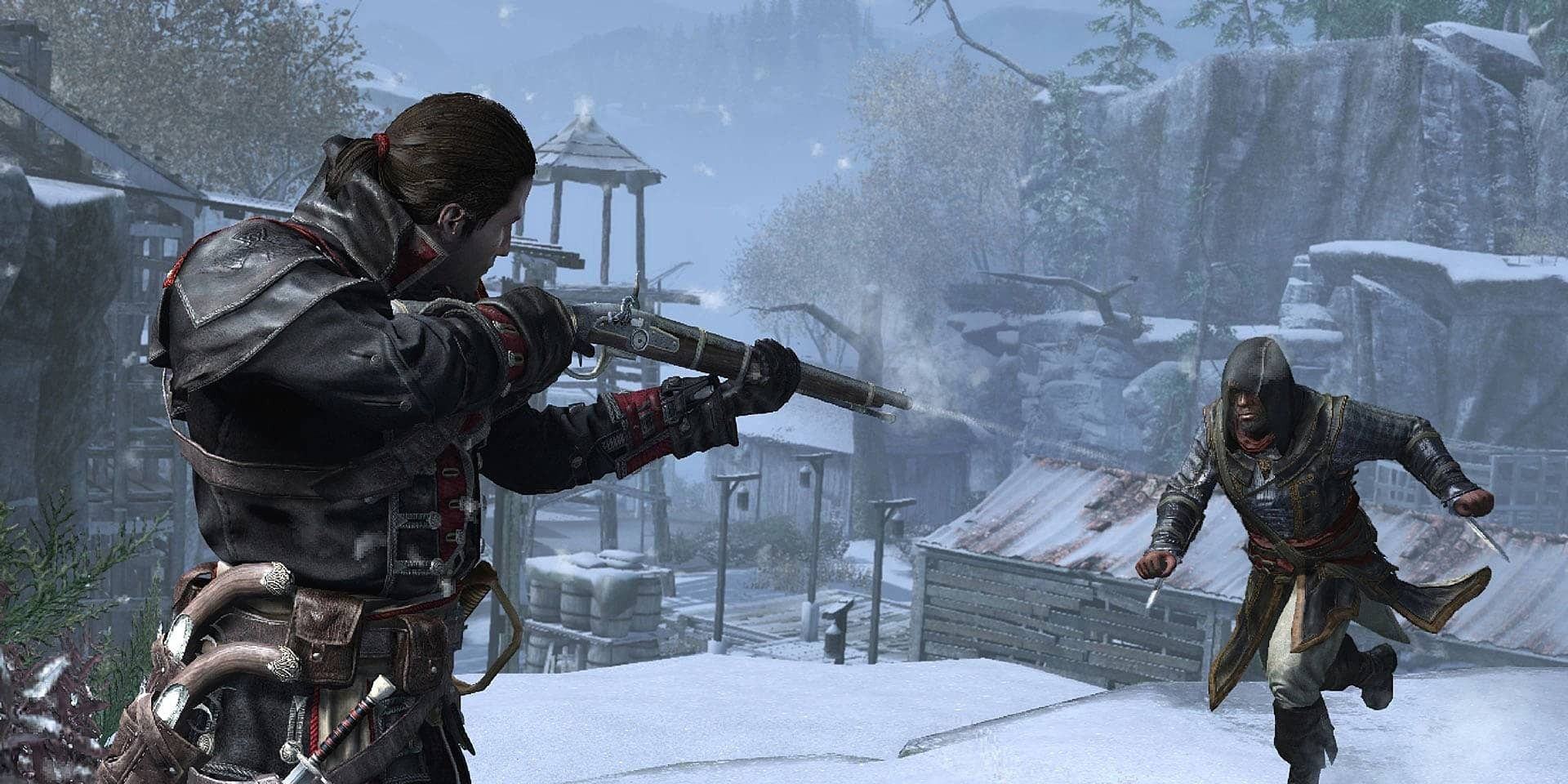
The first of two games released in 2014, Assassin’s Creed: Rogue‘s final mission actually serves as the prologue for Unity. Set during the Seven Years’ War, Rogue follows Shay Patrick Cormac, an Assassin turned Templar, in his efforts to hunt down and kill members of the Brotherhood who betrayed him.
With a weighted average of 72, Rogue holds a “mixed or average reviews” grade on Metacritic. Praise went to the primary twist of playing as an Assassin’s Creed Templar instead of an Assassin, as well as the complexity of the titular character. The game, however, failed to innovate or deliver a sailing experience as strong as Black Flag and featured a generally predictable plot.
10 Assassin’s Creed: Syndicate (2015)
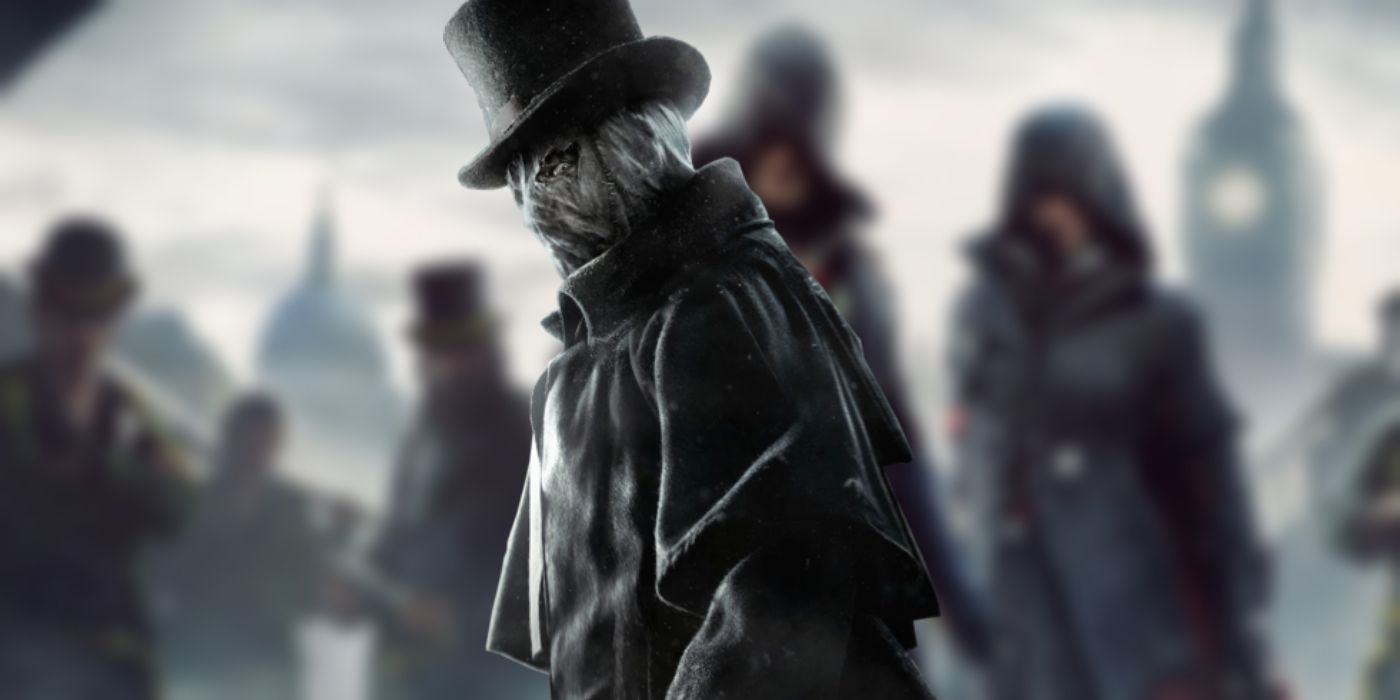
Things improved somewhat in 2015, though the franchise remained at a low point with Assassin’s Creed: Syndicate. With a Metacritic score of 76, firmly set on the “mixed or average reviews” camp, Syndicate follows twin Assassins Jacob and Evie Frye’s attempts to take back their city from Templar control.
Set in Victorian-era London, Syndicate offered an improvement on Unity and Rogue, with particular praise going to the plot, graphics, and missions. Many considered it a return to form for the franchise, although the repetitiveness of the gameplay acted as a strong downside.
9 Assassin’s Creed (2007)
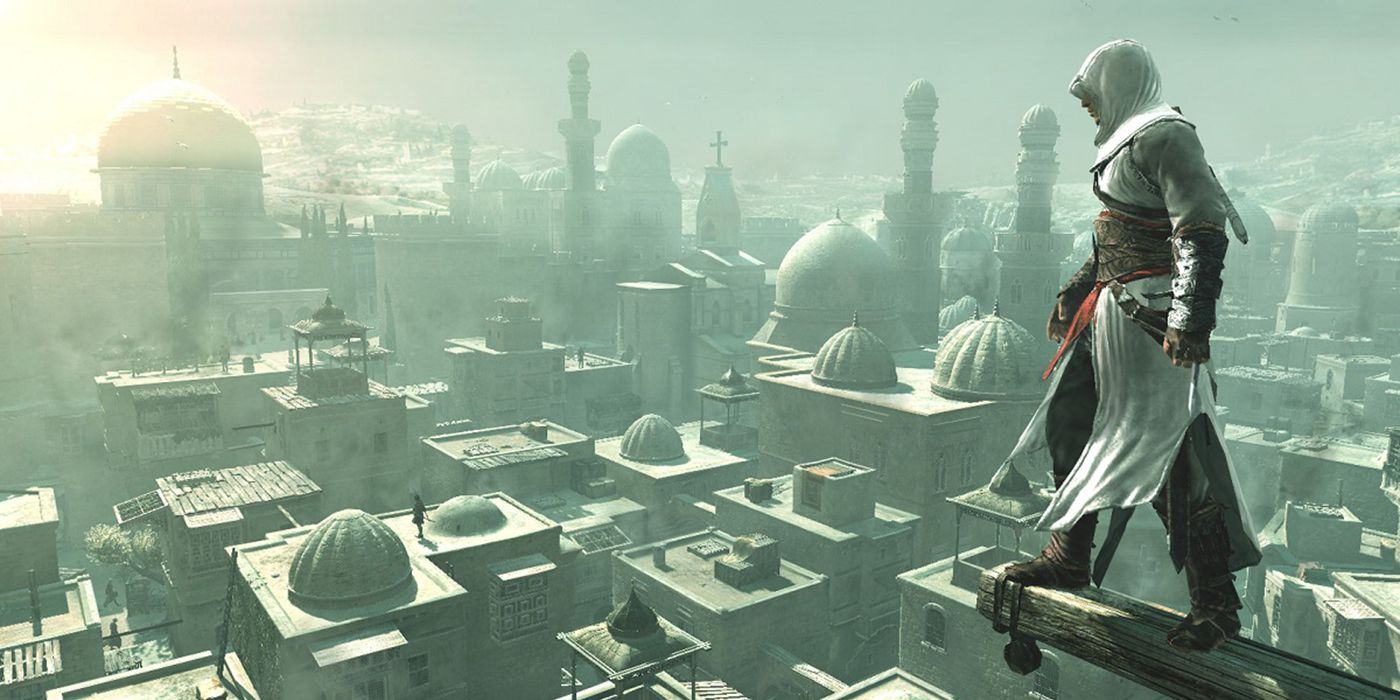
The game that started it all, the first Assassin’s Creed showed the promise of the series from the beginning. It takes place during the Third Crusade in the Holy Land and introduces Desmond Miles, the franchise’s modern-day lead – at least, during the first few games. The central conflict between Assassins and Templars is also introduced.
Praised for its innovative premise, engaging storytelling and visuals, and overall originality, Assassin’s Creed received a weighted average of 80 on Metacritic. Although its innovations are still interesting today, the characters and gameplay of later entries have improved in variety and entertainment.
8 Assassin’s Creed: Revelations (2011)
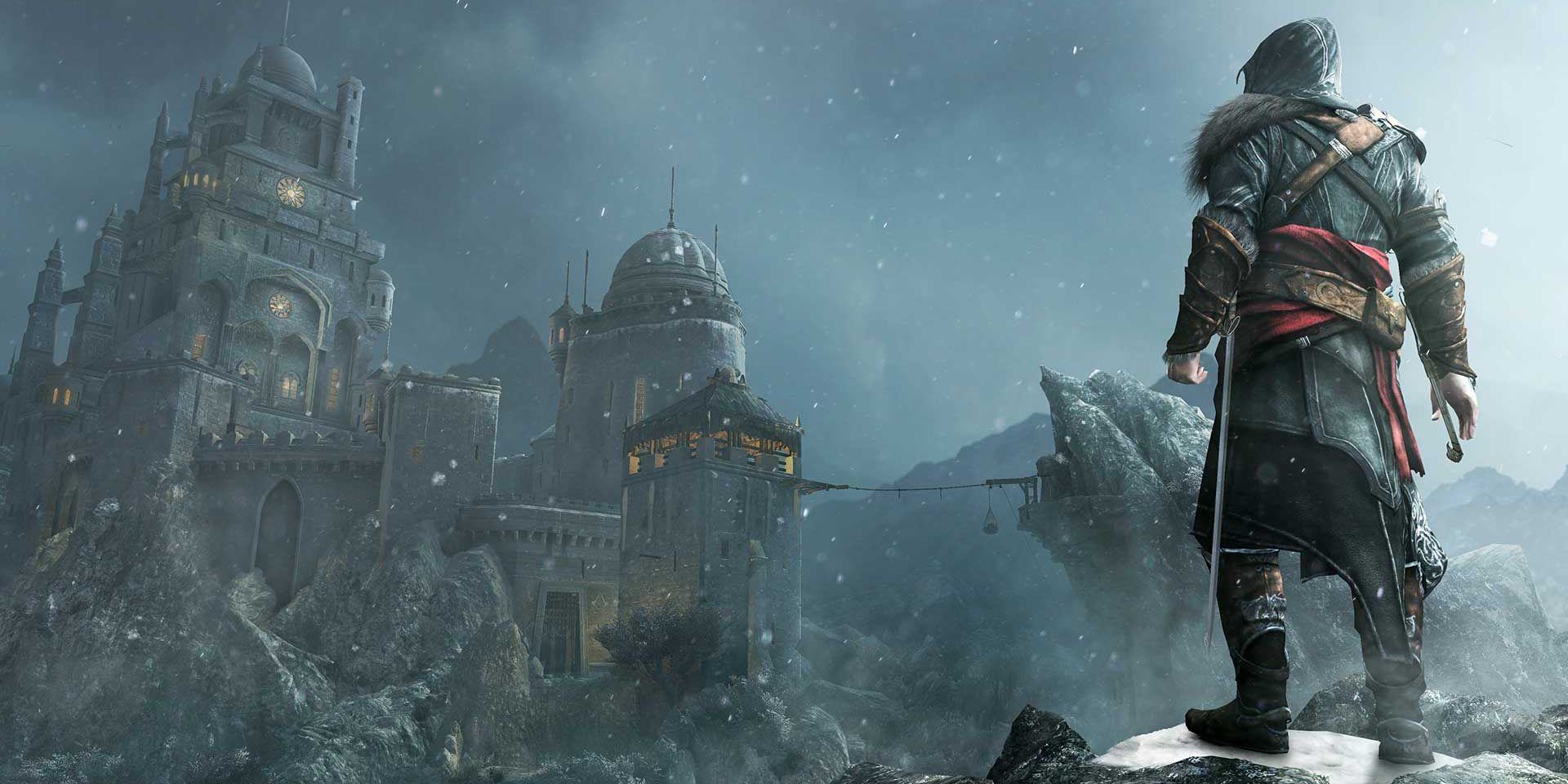
The fourth game in the main series, Revelations continues the story of Desmond Miles, still voiced by Nolan North, as he tries to avert the 2012 apocalypse. It is mainly set during the 12th and 13th-century in Masyaf, Cappadocia, and Constantinople.
Following up the acclaim offered to Assassin’s Creed 2 and Brotherhood, Revelations took a slight downturn by adding only superficial additions and covering a less compelling part of Ezio’s complete Assassin’s Creed story. It still brought a solid experience to the table and also stands as the first and so far only game where all its versions received the same grade on Metacritic, with PC, Xbox 360, and PS3 all getting an 80 “generally favorable” review.
7 Assassin’s Creed: Odyssey (2018)
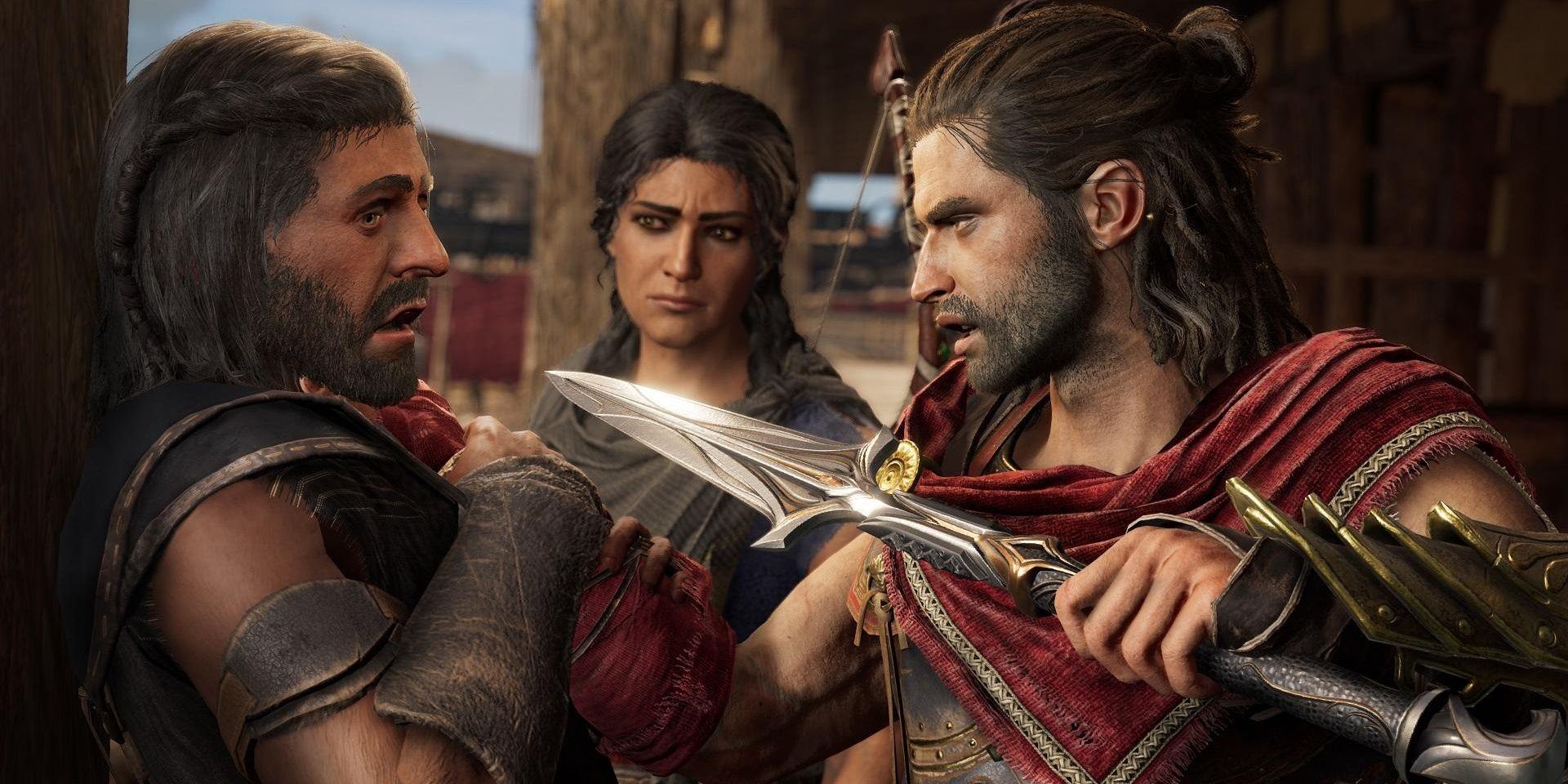
Premiering in 2018, Assassin’s Creed: Odyssey brought the franchise into full RPG mode. Odyssey took players further into the past than ever before, taking place between the years 431-422 BC. Set against the backdrop of the Peloponnesian War, the player controls a mercenary who fights for both sides as they attempt to find their family.
Odyssey received critical acclaim for its characters (particularly when choosing the strong Assassin’s Creed protagonist Kassandra), scope, setting, plot, gameplay, and story, gaining an 85 on Metacritic. However, the game’s reach sometimes exceeded its grasp, and a focus on having an enormous amount of content led to some of the missions feeling repetitive or trite. With a focus on making players explore and grind for achievement, Odyssey‘s best features could only sometimes overcome its weaknesses.
6 Assassin’s Creed 3 (2012)
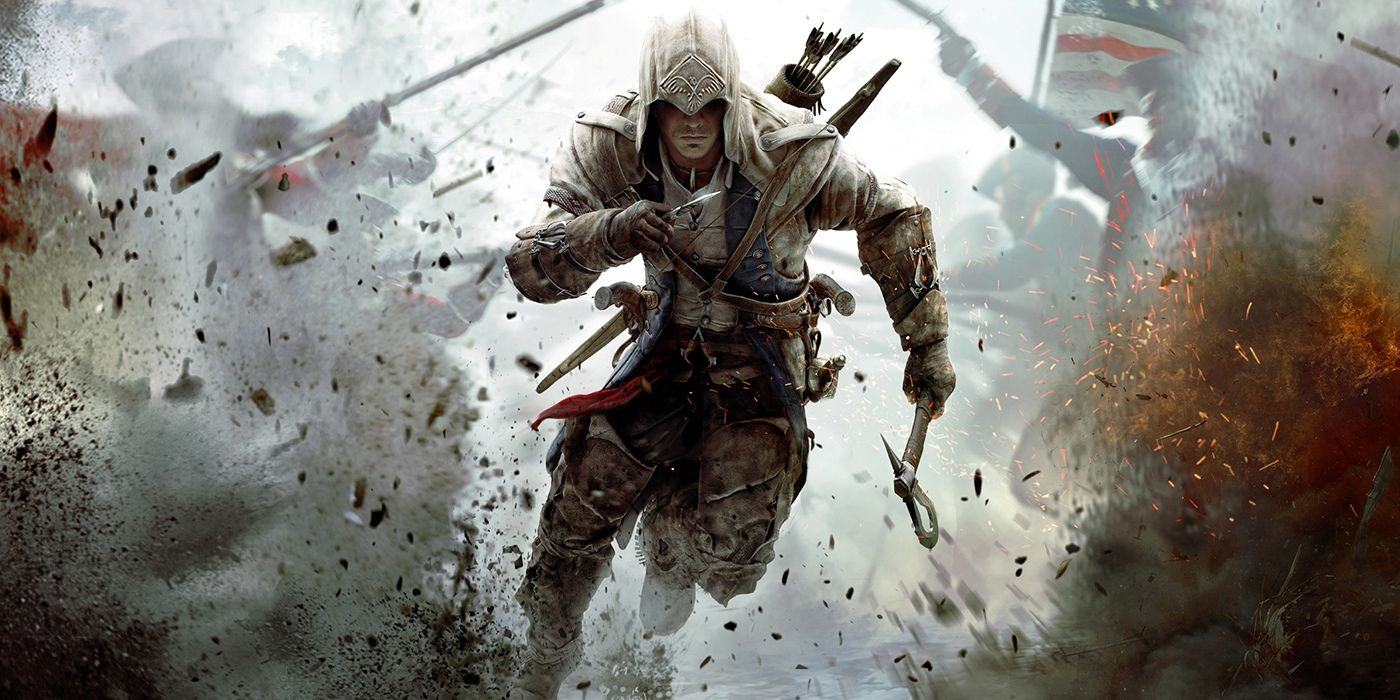
The sequel to Revelations and the fifth game overall, Assassin’s Creed 3 continues the apocalypse storyline and is set during the American Revolution. It received generally positive reviews, with an average weighted score of 83 on Metacritic.
The game courted some controversy when it was accused of anti-British sentiment while promoting American nationalism, particularly in its marketing. Once released, critics agreed that the depiction of both sides was balanced, with reviewers concurring with the developers claim that the game did not portray or endorse jingoism. Assassin’s Creed 3‘s excellent opening gives way to uneven story pacing, which coincided with a buggy release to make Assassin’s Creed 3 compare unfavorably against the high points of the Ezio games. Highlights like naval combat and tomahawk action, however, go a long way in counterbalancing flaws.
5 Assassin’s Creed: Valhalla (2020)
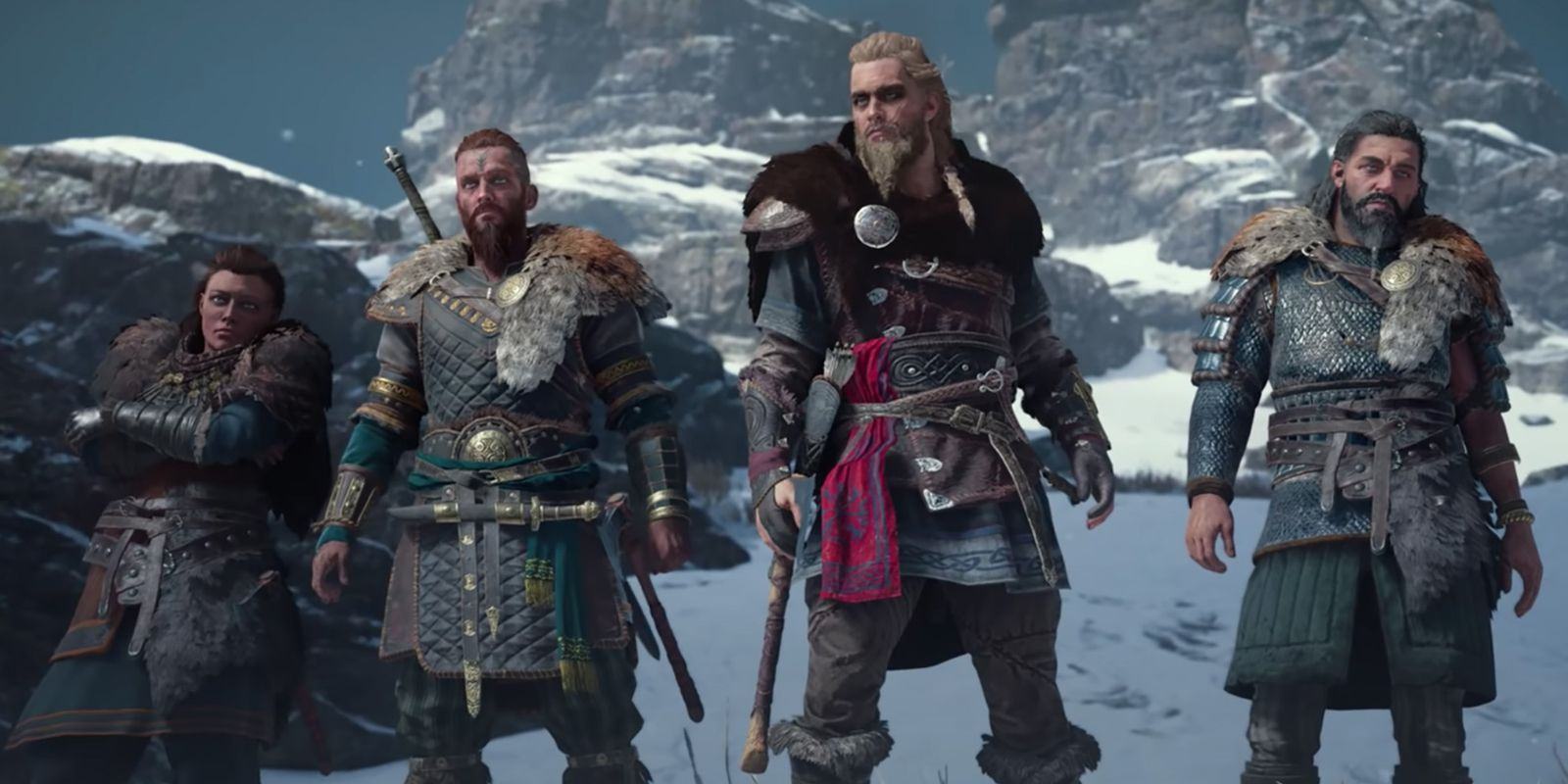
The latest entry into the Assassin’s Creed canon, Valhalla serves as a successor to Odyssey. Set during the Viking Invasion of Britain circa 872 CE, the player assumes control of the Viking Eivor, who becomes involved in the ancient conflict between Templars and Assassins.
Highly anticipated since its announcement, Valhalla received praise for its narrative and world design. Some side content can feel repetitive, but a less grindy approach to equipment marks an improvement from Odyssey. An average score of 83 on Metacritic shows that Valhalla‘s familiar approach doesn’t hold it back from being a good overall experience.
4 Assassin’s Creed 4: Black Flag (2013)
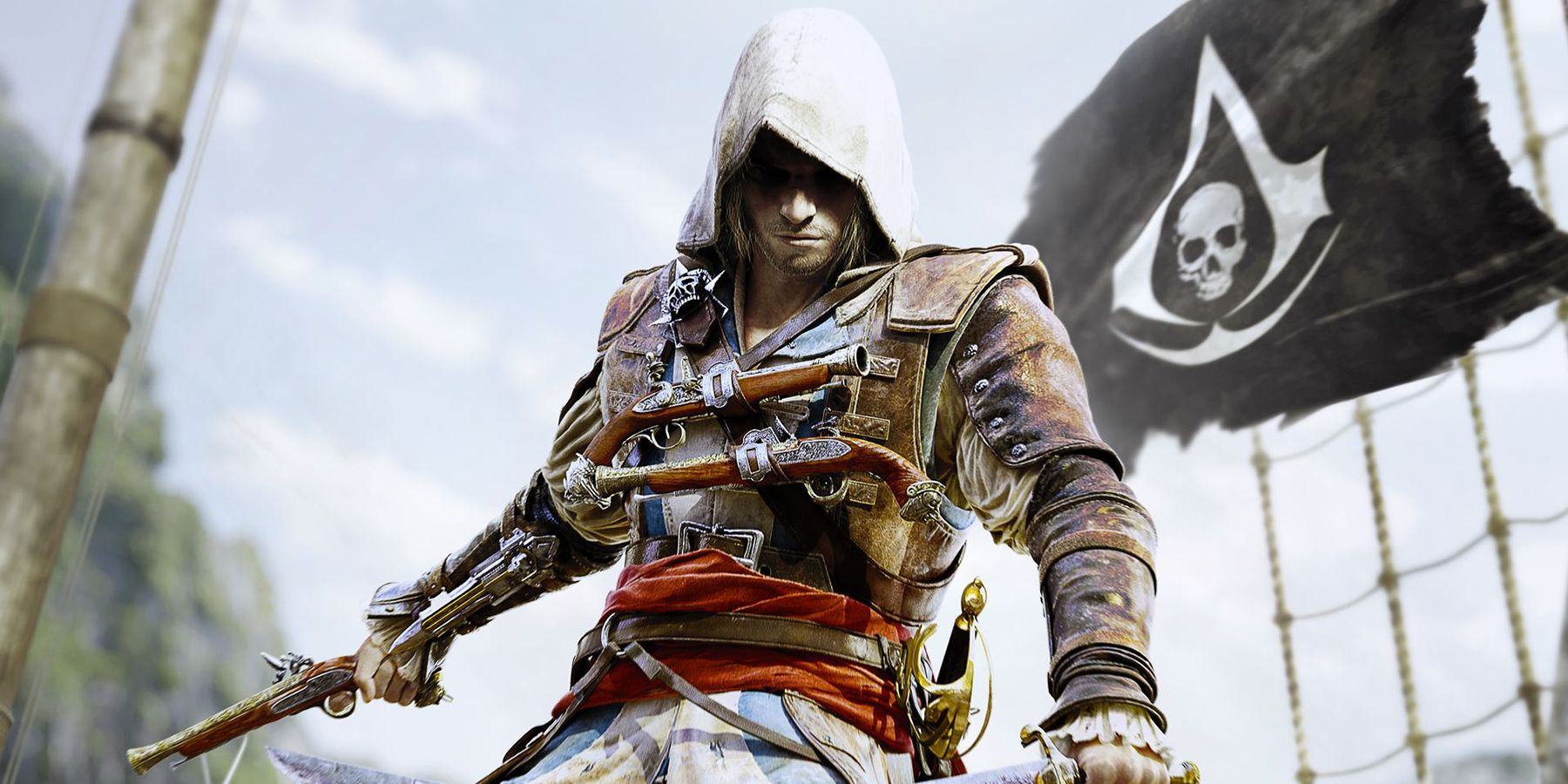
Black Flag represented substantially different gameplay from prior Assassin’s Creed games. Set in the 18th-century Caribbean during the Golden Age of Piracy, the game features a great deal of ship-based action, with particular emphasis on strategy and exploration. Black Flag follows Welsh pirate Edward Kenway, voiced by Matt Ryan, who stumbles upon the Assassin/Templar conflict.
Critically acclaimed upon release, Black Flag made an interesting and successful change-up to the traditional formula. Although Black Flag‘s open world tends to ping-pong players from mission to mission, its large scope marked an exciting change for the series, and its expansion of Assassin’s Creed 3‘s naval gameplay resonated with fans. With an 85 Metacritic score, it received high notes in all its iterations, with its PS3 version as the highest-rated.
3 Assassin’s Creed: Brotherhood (2010)
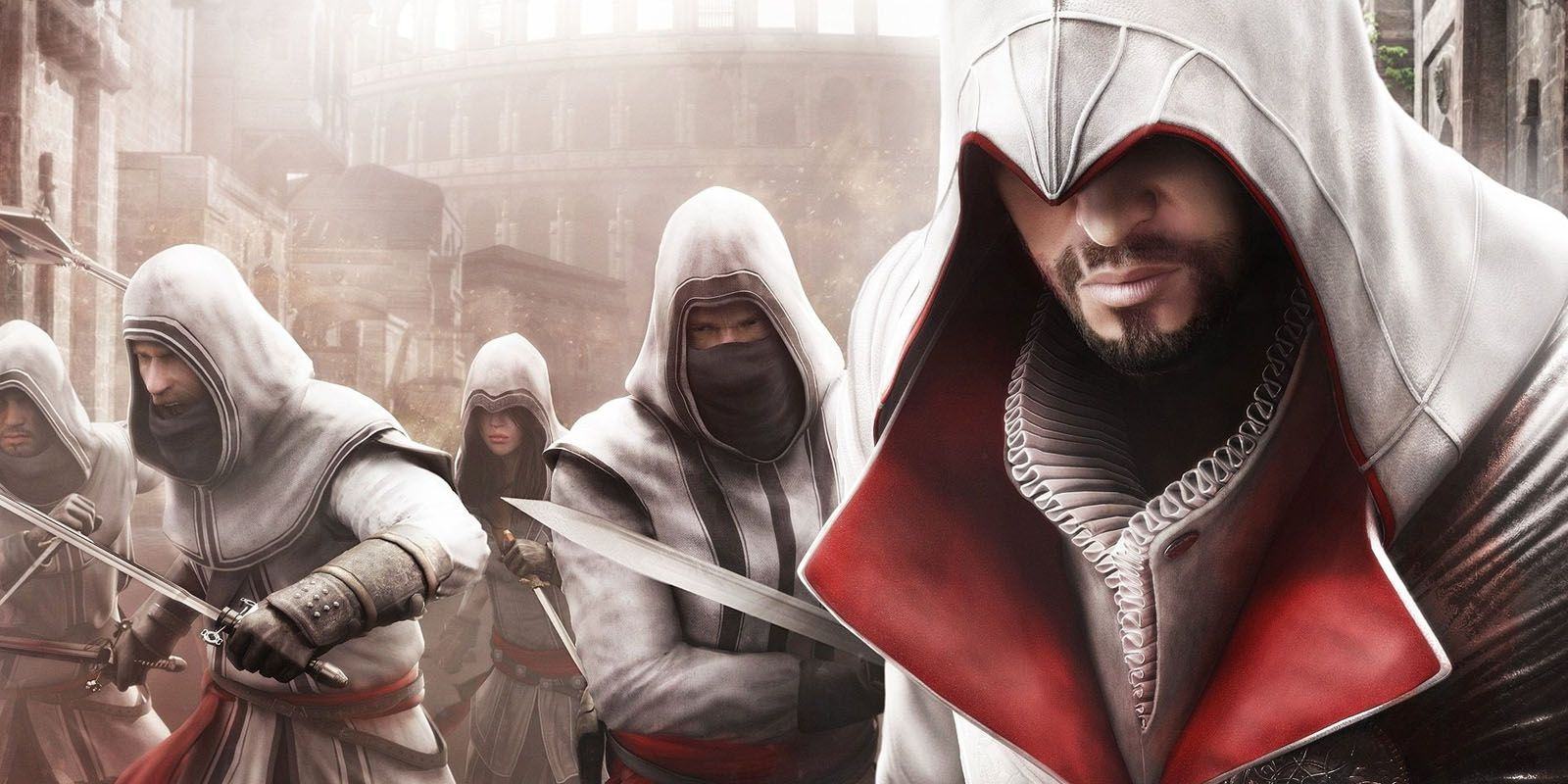
Entering into the golden age of Assassin’s Creed, Brotherhood marks the second installment of the Assassin’s Creed trilogy headlined by protagonist Ezio Auditore da Firenze. His quest to restore the Assassin order continues, as well as his goal of bringing down his enemies, the powerful Borgia family.
Set in 16th-century Italy, mainly Rome, Brotherhood earned critical acclaim. The PS3 version achieved a 90 on Metacritic, although its weighted average is 89 when counting the Xbox 360 and PC versions. Although the story doesn’t always operate at the heights of Assassin’s Creed 2, an excellent setting, improved gameplay, and interesting side content made it a more than worthy follow-up to a legendary predecessor.
2 Assassin’s Creed: Origins (2017)
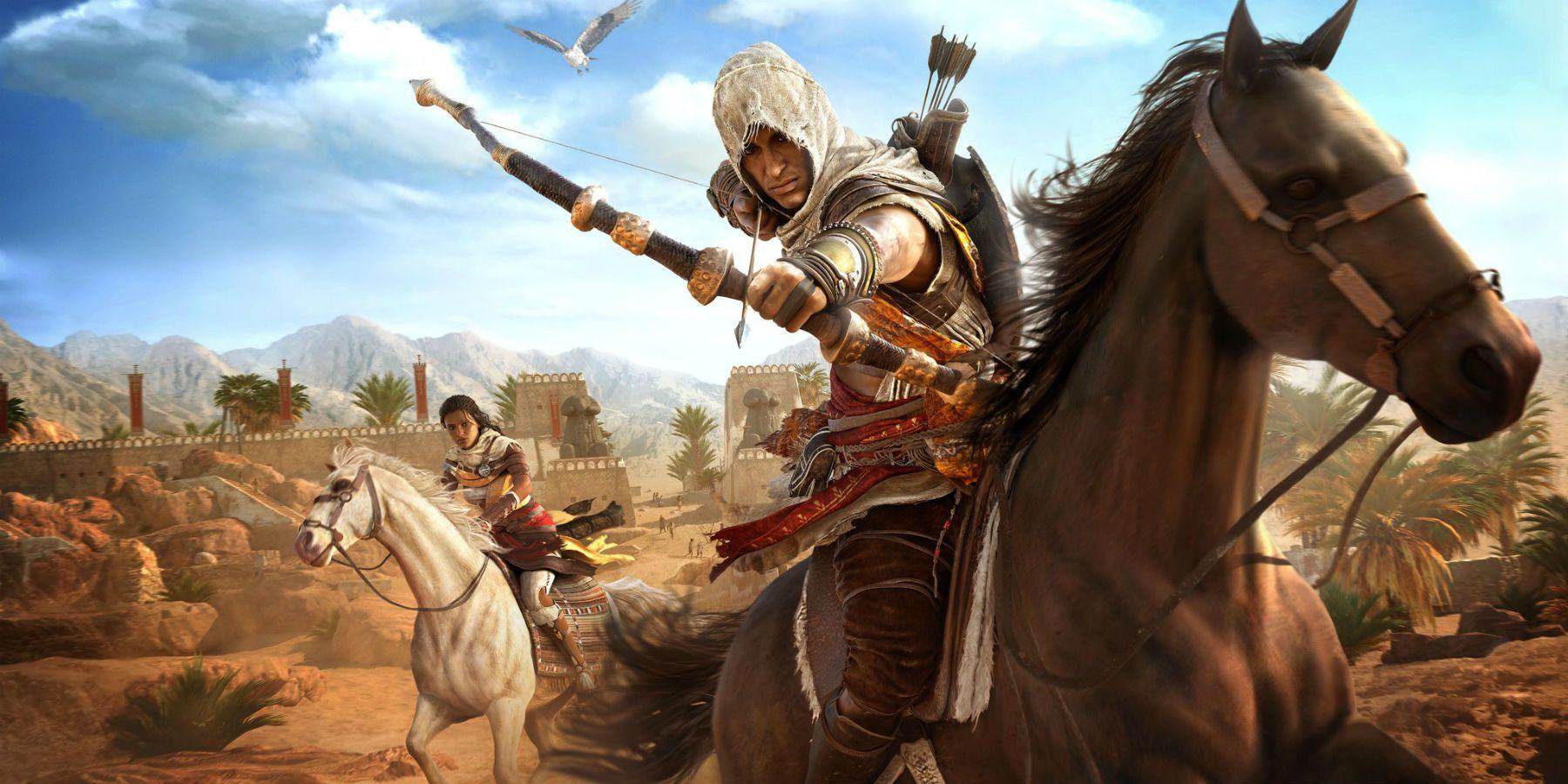
Assassin’s Creed: Origins is set in Egypt at the end of the Ptolemaic Period circa 49 BCE. It explores the conflict between the Hidden Ones, ancestors of the Assassins, and The Order of the Ancients, who were forerunners of the Templars. It emphasizes role-playing elements but retains the open-world and stealth elements typical of the franchise.
The enormous Assassin’s Creed Origins mapleads to a slower pace than prior games in the series, but the game excels in many other regards. The engaging protagonist Bayek has a compelling and personal story, and clearing enemy camps proves more engaging than prior games thanks to interesting combat and design. With an average of 83 on Metacritic, indicating “generally positive reviews,” Origins successfully took Assassin’s Creed into new and exciting territory.
1 Assassin’s Creed 2 (2009)
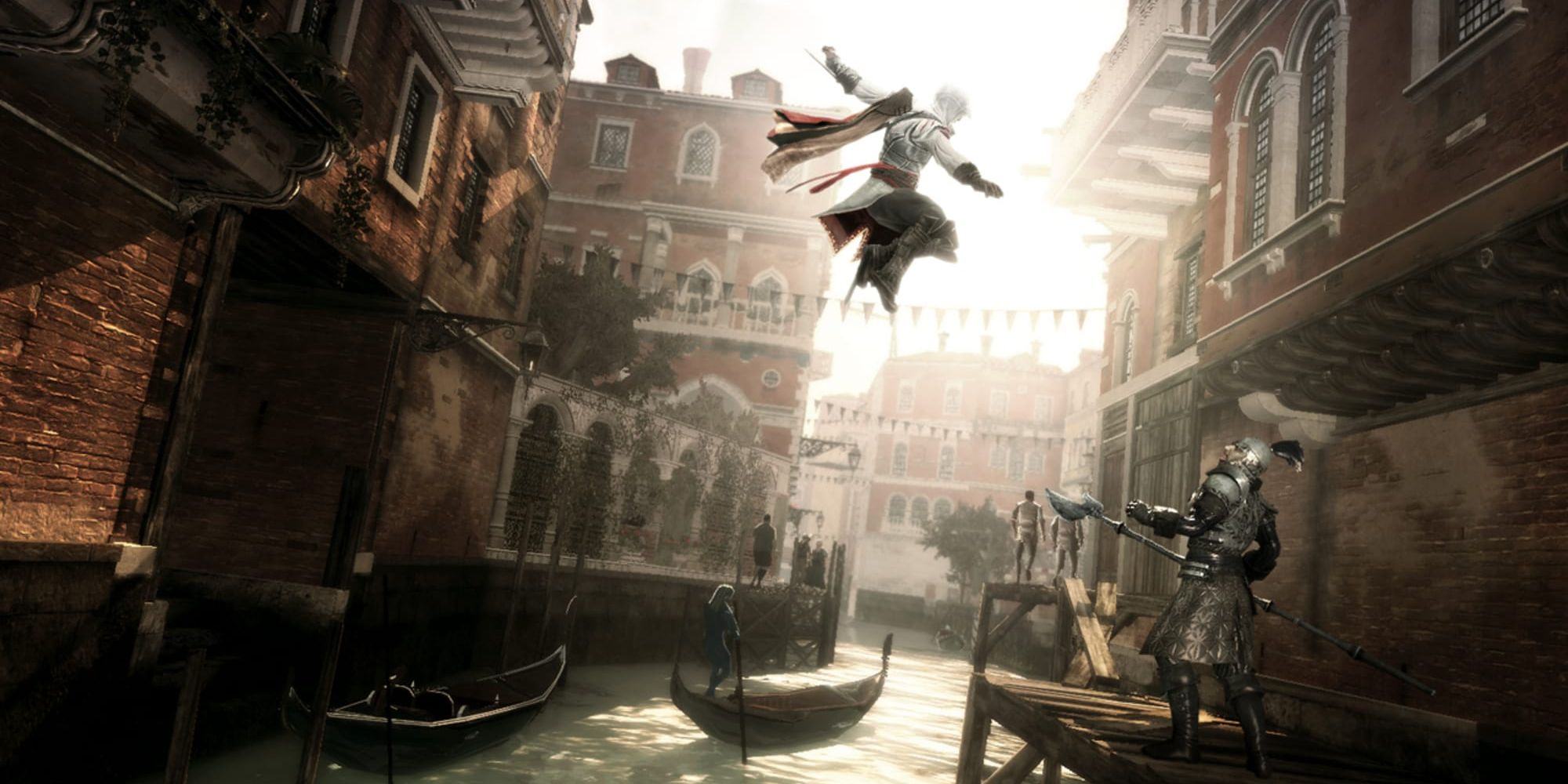
Assassin’s Creed 2 turned the franchise into a true force with which to be reckoned in the gaming world. Taking place at the height of the Italian Renaissance, the plot follows Ezio as he seeks vengeance against those who betrayed his family, discovering mysteries left behind by an ancient race known as the First Civilization.
Critically acclaimed at the time of its release, Assassin’s Creed 2’s realistic open world, in which the player can explore Florence, Venice, Monteriggioni, and Forli, received universal praise. This perspective holds up today, as limited combat options and a smaller scope fail to drag down a tight, focused story and gameplay experience.Plenty of great Assassin’s Creedgames have released since Ezio’s first adventure, but the rooftops of Venice still stand tall above the rest.
Source: Ubisoft/YouTube
